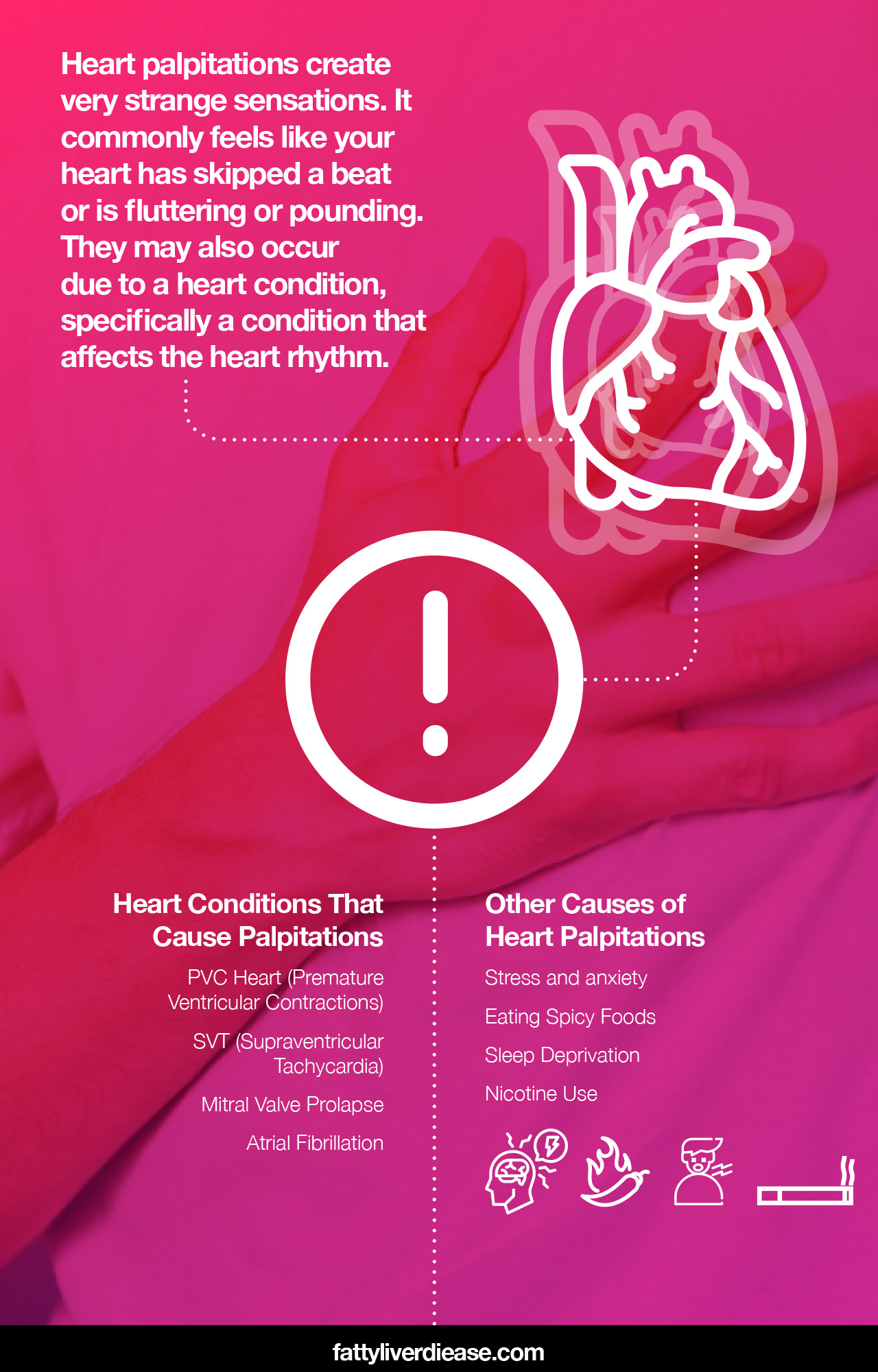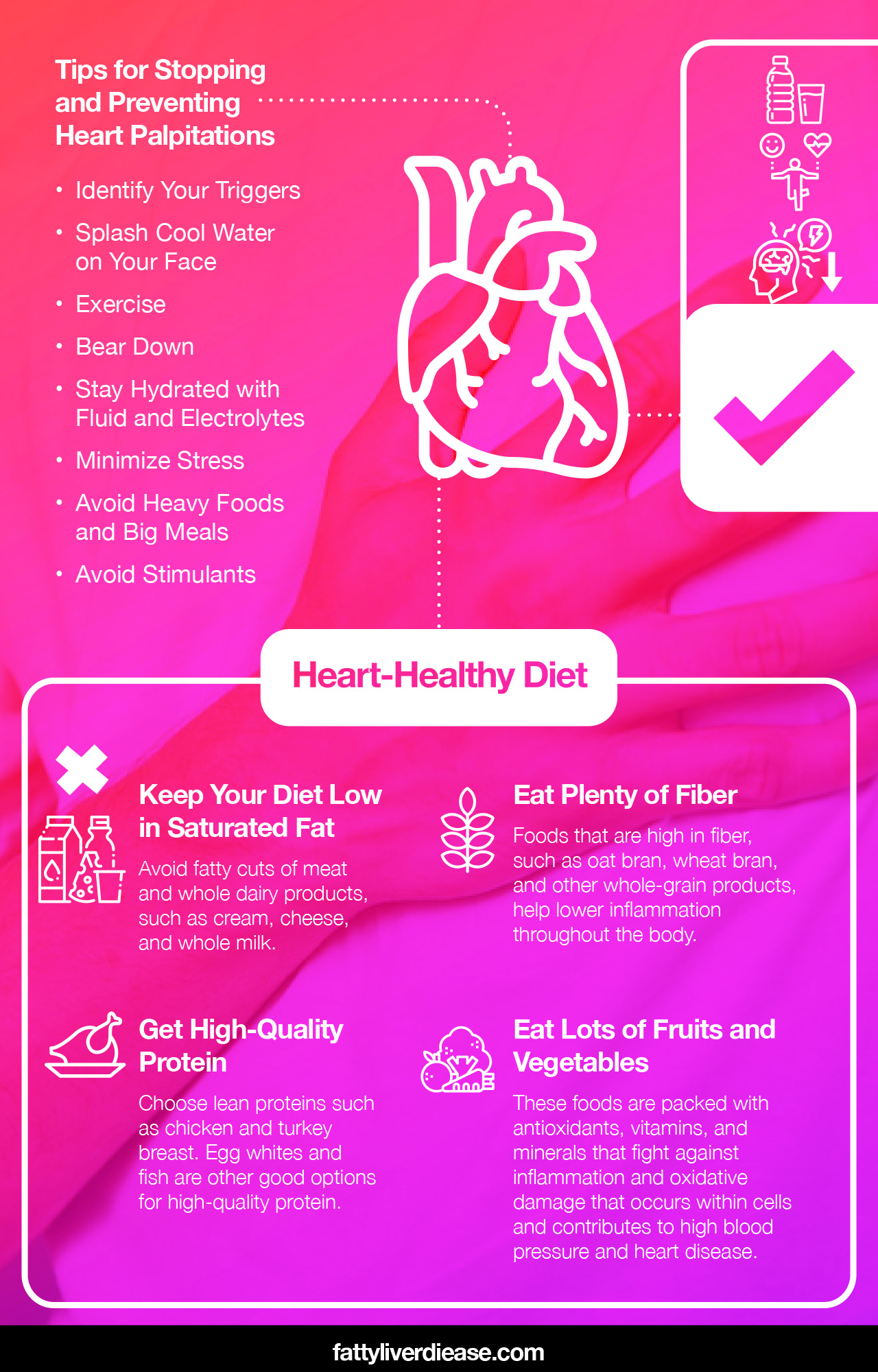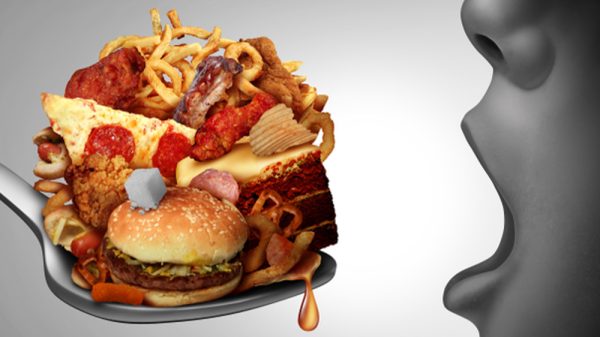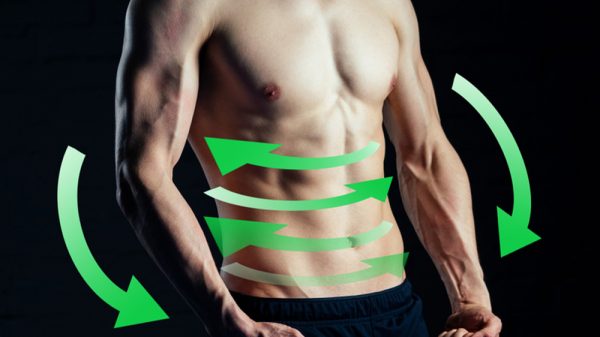Let’s dive into what it means to have an irregular heartbeat. A lot of people experience irregular heartbeats and often say that it feels like their heart skips a beat. Here we go over what you need to know about irregular heartbeats.
Can stress and anxiety cause irregular heartbeat? How do you calm a racing heart? How do I know if my heart is ok? We answer all of your questions here.
Palpitations Are Usually Normal
First of all, let’s dissipate the panic by mentioning that heart palpitations are usually nothing to worry about. The heart is a strong organ that beats around 100,000 times per day. It’s bound to have a few imperfect or skipped beats here and there.
What Does a Heart Palpitation Feel Like?
A heart palpitation creates very strange sensations. Heart palpitations commonly feel like your heart has skipped a beat or is fluttering or pounding. A palpitation may feel a little different for everyone, though generally, the symptoms make you hyper-aware of the beating of your heart.
Some people experience palpitations on occasion, while other people have them very often. Let’s dive right into reasons you might experience heart palpitations.
Can Stress and Anxiety Cause Irregular Heartbeat?
The answer to this question is yes; stress and anxiety can absolutely cause an irregular heartbeat. When we get stressed or anxious, our levels of adrenaline and cortisol shoot up, which triggers the heart to beat faster and harder. As a result, the heart is more prone to palpitating or fluttering. Stress and anxiety may also trigger a common type of palpitation called an ectopic beat, in which there is a lag in the heart rhythm, and the following beat is extra hard to make up for the skipped beat.
Other Causes of Heart Palpitations (That Are Not Heart Conditions)
Heart palpitations can also occur as a reaction to other stimuli, aside from stress and anxiety. Here are a few examples:
1. Eating Spicy Foods
For some people, eating spicy foods causes a histamine reaction in the body. This may trigger heart palpitations that may feel uncomfortable but are generally harmless. If you notice that you are sensitive to spicy foods, aim to limit your consumption of foods like jalapenos, hot sauce, red pepper flakes, and cayenne pepper.
2. Sleep Deprivation
Sleep deprivation is a common cause of heart palpitations. Sleep is a state during which your body can recover from the day’s activities by flushing out waste and repairing any damage on a cellular level. Getting an inadequate amount of sleep places extra stress on the body that may result in palpitations.
3. Nicotine Use
We all feel pretty bad when we are deprived of sleep. Sleep is a crucial time for the body to heal and repair from the day’s activities.

Heart Conditions That Cause Palpitations
As mentioned above, heart palpitations may occur for absolutely no reason. But they may also occur because of a heart condition, specifically a condition that affects the heart rhythm.
Stress and anxiety may also worsen heart conditions if you have one, and trigger symptoms. Again, keep in mind that many of these conditions are absolutely harmless and/or can be treated. Let’s get into these conditions that can cause disturbances in heart rhythm.
1. PVC Heart
PVC stands for premature ventricular contractions. During these palpitations, extra beats stem from the ventricles in the heart. These contractions often feel like fluttering or skipped beats.
2. SVT
SVT stands for supraventricular tachycardia, which is a term identifying heart rhythm disorders that stem from the atria. Individuals with SVT experience bursts of a rapid heart rate. Some individuals experience SVT episodes occasionally, while others experience them more often. If SVT occurs very often, is bothersome, and interferes with daily life, a patient may need treatment.
3. Mitral Valve Prolapse
Mitral valve prolapse is a generally harmless malformation of the mitral valve in the heart. The mitral valve is a flap that regulates the flow of blood between the left atrium and ventricle. For individuals with this condition, the mitral valve is floppier than usual. This means that the mitral valve doesn’t completely shut after blood flows through, which can increase the risk of regurgitation, or the backflow of blood into the heart instead of out through the body. Though it’s not life-threatening, mitral valve prolapse can feel very uncomfortable and cause fatigue, palpitations, and lightheadedness. Staying hydrated can help prevent mitral valve regurgitation by keeping your blood flow high enough to encourage continuous blood flow.
4. Atrial Fibrillation
Atrial fibrillation, also known as afib, is another common heart condition that tends to affect older individuals. Afib symptoms include lethargy, weakness, lower tolerance for exercise, palpitations, and a rapid heart rate. These common symptoms are often very uncomfortable. Untreated afib can increase the risk of stroke, so it’s best to get treated for afib as promptly as possible.
Tips for Stopping and Preventing Heart Palpitations
There are a few things you can do at home to stop palpitations when they happen and to help prevent them from happening in the future.
1. Identify Your Triggers
This is the first step in stopping and preventing heart palpitations. If you can pinpoint when they seem to happen, then you will be better equipped to take action to minimize their occurrence. Whenever you notice palpitations, make a note of the date, time of day, what you’ve eaten recently, the amount of sleep you’ve had, and any stressors. This information can help you figure out when your palpitations occur and what you can do to minimize their frequency.
2. Splash Cool Water on Your Face
Cool water activates the vagus nerve, which plays a role in regulating heart rhythm. Once you splash cold water on your face, you may feel your palpitations subside.
3. Exercise
Light exercise may be enough to stop palpitations in their tracks. Exerting physical energy is often enough stimulation to encourage the heart to beat normally and regularly.
4. Bear Down
Bearing down like you are trying to have a bowel movement is actually quite effective when it comes to stopping palpitations. Like splashing cool water on your face, bearing down activates the vagus nerve and regulates irregular heart rhythm.
5. Stay Hydrated with Fluid and Electrolytes
Staying hydrated is crucial for preventing heart palpitations. Keeping your blood volume at normal levels, and making sure your sodium and potassium levels are normal helps regulate the electrical impulses that trigger your heart to beat.
6. Minimize Stress
Because panic attacks, anxiety attacks, and anxiety disorders are such significant causes of palpitations, practicing stress management techniques is an excellent way to keep stress and anxiety at bay and minimize your heart palpitations.
To help manage palpitations, practice deep breathing, meditation, and yoga. All three strategies can be very helpful for managing palpitations. In particular, deep breathing can help you calm a racing heart while also warding off palpitations. To practice deep breathing, take a long inhale through your nose, and exhale slowly through your mouth.
7. Avoid Heavy Foods and Big Meals
For many people, meals with heavy foods like cream, fatty cuts of meat, and cheese can trigger palpitations. Similarly, eating too much at one time can trigger indigestion as well as heart palpitations.
8. Avoid Stimulants
Stimulants include coffee, caffeinated drinks, cold medicines, and medications to manage mental health conditions. If you have a mental health condition that is managed by stimulant medications, discuss your symptoms with your doctor. Your physician will likely be able to prescribe an alternate medication that provides the same therapeutic effects without the impact on your heart.

Underlying Conditions That May Cause Irregular Heartbeats
In many cases, there is nothing inherently wrong with the heart. Instead, an underlying issue is causing disturbances in the heart’s rhythm. Here are a few examples:
- Thyroid disease: Thyroid disease impacts the levels of hormones in your blood, which can disrupt the normal electrical pattern that triggers heartbeats.
- High blood pressure: Having chronically high blood pressure puts stress on your blood vessels and your heart muscle, which can increase the risk of experiencing heart palpitations.
Eating a Heart-Healthy Diet
Eating a diet that supports a healthy heart and a healthy circulatory system is important for keeping your blood pressure low and also reducing the risk of developing heart disease. So, what should you eat in order to protect your heart? Keep reading to find out the fundamentals of a heart-healthy diet.
Keep Your Diet Low in Saturated Fat
Saturated fat is a major culprit when it comes to heart disease. Eating too much saturated fat drives up cholesterol levels, which facilitates the process of atherosclerosis. Atherosclerosis describes a buildup of plaque on arterial walls. Plaques are accumulations of cholesterol and other debris in the bloodstream, which then builds up on the sides of blood vessels. The formation of plaques greatly increases the risk of conditions like coronary artery disease. These plaques impeded blood flow, and in some cases, they may break off from the wall of the blood vessel and travel to other parts of the body. These plaques can then form blockages in the heart, brain, and lungs, leading to very serious and potentially life-threatening symptoms.
So, how can you limit saturated fat in your diet? You can limit saturated fat in your diet by avoiding fatty cuts of meat and whole dairy products, such as cream, cheese, and whole milk.
Get High-Quality Protein
Did you know that your heart is a muscle? Because your heart is a muscle, it’s extremely important to support muscle maintenance through the foods you eat. One of the most important foods when it comes to protein synthesis in muscle maintenance is dietary proteins. Without enough protein in our diet, muscle mass starts wasting away, and eventually, this includes our heart muscle. Dietary protein contains essential amino acids, which are indispensable to human health because we cannot produce essential amino acids endogenously. As a result, we require optimal ratios of essential amino acids on a daily basis from the foods we eat.
How can you ensure that you are getting optimal ratios of essential amino acids on a daily basis? You can make sure that you’re getting all of the essential amino acids that you need by eating high-quality protein. Animal proteins are the only single protein sources that provide optimal ratios of essential amino acids. When choosing animal proteins, it’s important to avoid meat and dairy products that are high in saturated fat. Instead, choose lean proteins such as chicken and turkey breast. Egg whites are another good option for high-quality protein. Fish is an excellent option for obtaining optimal ratios of essential amino acids. Fatty fish is packed with omega-3 fatty acids, which reduce inflammation throughout the body, including the heart and blood vessels.
Eating Plenty of Fiber
Fiber is extremely important for supporting heart health. Foods that are high in fiber, such as oat bran, wheat bran, and other whole-grain products, help lower inflammation throughout the body. One way that they do this is by supporting a healthy balance of gut flora in the microbiome. When we eat fiber, fiber particles travel through the digestive tract and into the intestines relatively intact. In the intestines good gut bacteria break down and feed on the fiber, producing anti-inflammatory compounds as by-products. These anti-inflammatory compounds are then absorbed through the intestinal wall and into the bloodstream where they can then circulate through the bloodstream and reduce inflammation. Eating a diet high in fiber is associated with lower cholesterol levels and a lower risk of developing heart disease.
Eating Lots of Fruits and Vegetables
Eating loads of fruits and vegetables is very therapeutic for the heart. Fruits and vegetables are packed with antioxidants, vitamins, and minerals that fight against inflammation. Antioxidants like polyphenols and carotenoids fight against oxidative damage that occurs within cells and contributes to high blood pressure and heart disease.
Many vegetables are also packed with nitrates that naturally increase the movement of the endothelium in blood vessels, allowing them to dilate more readily. This in turn decreases blood pressure, which takes the pressure off of the heart and decreases the incidence of heart palpitations. To add more nitrates to your daily diet, eat foods like beets, arugula, and spinach.
To support your heart health, incorporate lots of fresh fruits and veggies into your diet on a daily basis. Great options include kale, carrots, sweet potato, swiss chard, celery, pomegranate, blackberries, blueberries, and watermelon.
When Are Heart Palpitations Not Normal?
If your heart is palpitating and you are also experiencing shortness of breath, fainting, chest pain, a prolonged and continuous period of irregular heartbeats, or any other concerning symptoms, seek medical attention immediately. These symptoms may indicate heart attack, heart failure, or other serious heart problems.
When to Seek Medical Attention
Though palpitations are extremely common and in most cases not serious, it’s probably still a good idea to get them checked out by a doctor, even if only for peace of mind. If your heart palpitations are new and increasing in frequency, it’s probably best to be evaluated by a physician, just to determine the cause and whether you need treatment.
What to Expect at the Doctor’s
When you go to the doctor to get evaluated for heart palpitations, your general practitioner will likely listen to your heart with a stethoscope. The doctor would be able to detect a palpitation if it occurred, and they would also be able to determine the presence of mitral valve prolapse or a heart murmur in many cases. But the tricky thing is that during the few seconds the doctor is listening, your heart likely won’t palpitate.
So, if you’re worried about your palpitations, your general practitioner will refer you to a medical specialist in cardiology, or a cardiologist. When you visit the cardiologist, you may get an EKG (also known as an electrocardiogram). An EKG will reveal abnormalities in your heart rhythm. However, it’s also very likely that an EKG will not reveal anything abnormal, since it is only a 12-second test.
A cardiologist may recommend that you wear a Holter monitor for as short a duration as 24 hours, or as long as a month. When wearing a Holter monitor, you will be asked to press a small button whenever you feel symptoms. You may also be asked to record your symptoms on a sheet of paper. This information is useful because it allows the doctor to read the results of the Holter, and line them up with what you are experiencing.
You may also receive an echocardiogram, also known as an echo, which uses ultrasound technology to assess any structural abnormalities of the heart. For example, an echocardiogram is able to portray the buckling of the mitral valve in the case of mitral valve prolapse.
Conclusion: Can Stress and Anxiety Cause Irregular Heartbeat?
Irregular heartbeats and palpitations can be triggered by many issues including anxiety, stress, medications, foods, sleep deprivation, heart conditions, or other underlying health conditions. In the majority of cases, heart palpitations are not serious and can be managed simply with diet and lifestyle changes at home. However, whenever you are concerned about your heart, it’s a good idea to seek medical attention.
























